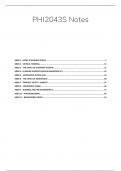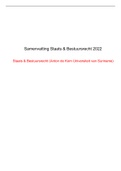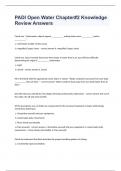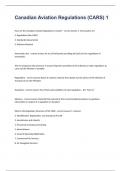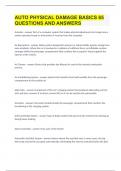Samenvatting
Summary Business Ethics PHI2043S | Notes for the entire course
- Vak
- Instelling
These notes thoroughly cover all the content for the course and allowed me to achieve a 75% overall for the module. It is a Word document so that you can edit and add new work that may be covered.
[Meer zien]
